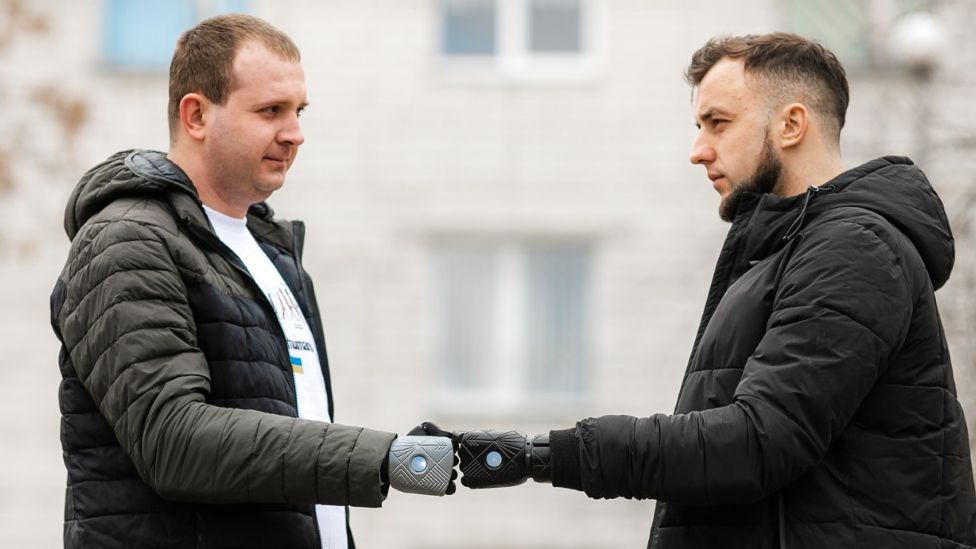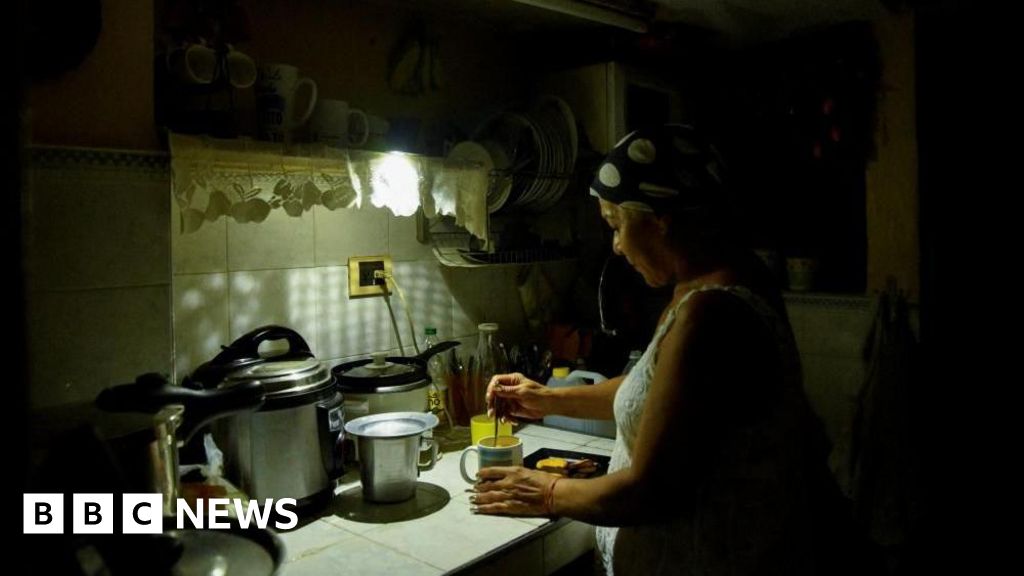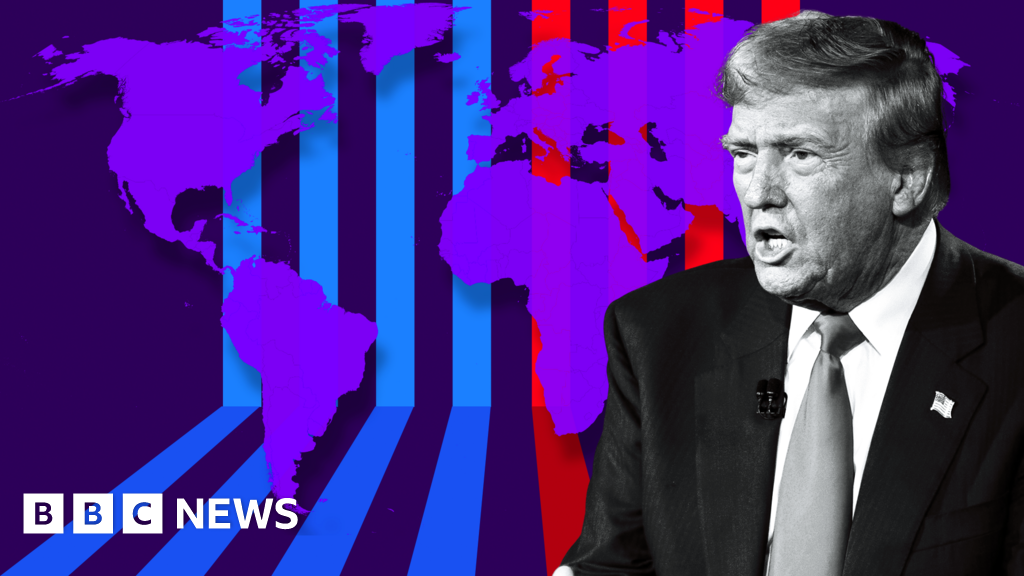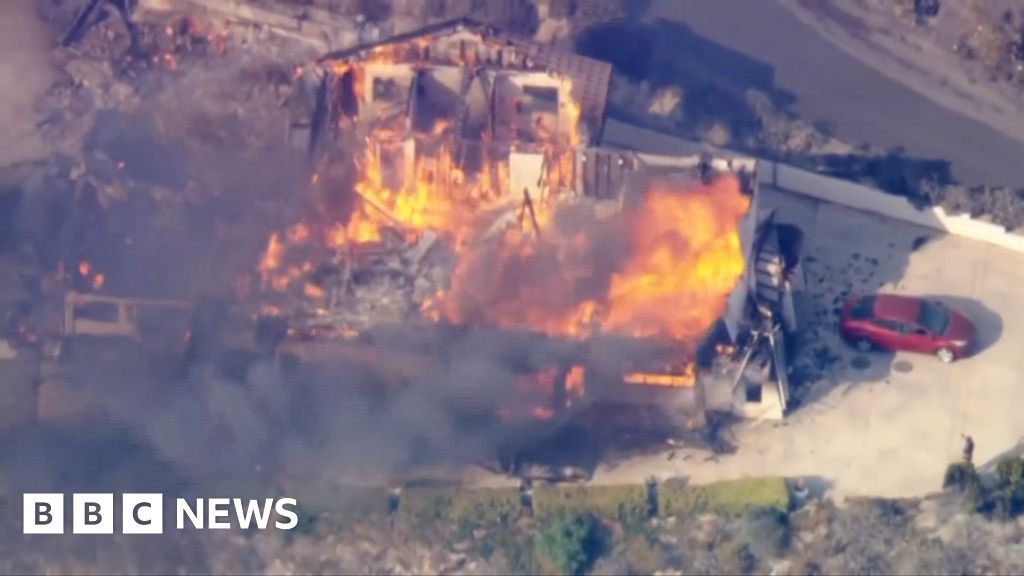ARTICLE AD BOX
 Image source, Superhumans
Image source, Superhumans
Andrii (left) and Vitalii lost their hands fighting for Ukraine in the war
The day after Vitalii's amputation, he looked down at where his hand once was. He was determined to put his T-shirt on by himself, despite his comrades offering to help.
"I don't need help if I don't ask for it myself. If I see that I can't help myself, I will definitely say so. I do not consider myself disabled," says the 24-year-old soldier. "I am fully capable."
But putting on a T-shirt is one thing, his dream of returning to Ukraine's frontline is another.
That's why he's put his faith in a new bionic arm - built in the UK and given to him by the charity behind a unique treatment centre that's just opened in Lviv.
Watch: How bionic arms are being made for Ukrainian soldiers
Vitalii is from the Zhytomyr region of Ukraine. Since he was 15, he has wanted to be a soldier and fight for his country.
He was in Poland when he heard the announcement of Russia's invasion and he rushed back home to sign up as soon as he could.
It was during a tank assault near Bakhmut that he lost his lower left arm. He describes how he heard the Russians coming, just 200m from him.
"I took a grenade launcher and decided to wait behind the bushes until they came out, but I lost the right moment."
Vitalii says he doesn't remember exactly what happened next, but in the ensuing fight, his wrist was devastatingly injured.
"I jumped aside and asked my comrade to use a tourniquet." His team called for an evacuation.
Image source, Vitalii Ivashchuk
Image caption,Vitalii had wanted to be in the army since he was a teenager
Vitalii is just one of thousands of Ukrainians, soldiers and civilians, who have lost limbs because of complex war injuries, according to the World Health Organization.
Now he and another Ukrainian, Andrii Hidzun, have become the first soldiers to receive 3D-printed prosthetics funded by a Ukraine-based charity, Superhumans, which works to help those who have suffered devastating injuries from the war.
On Friday, it opened the first rehabilitation facility of its kind in Ukraine - the Superhumans Centre - designed to provide people like Vitalii and Andrii with the correct treatment post-amputation.
Image source, Vitalii Ivashchuk
Image caption,Vitalii lost his lower arm fighting in Bakhmut
The charity has the backing of Viktor Liashko, Ukraine's minister of health, while the country's first lady, Olena Zelenska, is on the supervisory board.
Superhumans is not a commercial project. It is funded by donations from international charities, foundations and private donors which include US charities, the UK's Virgin Group and the rock singer Sting.
Image source, Superhumans
Image caption,The centre is the first dedicated unit for prosthetic rehabilitation in Ukraine
The chief executive of the centre, Olga Rudnieva, wants to support the thousands who have lost limbs in the conflict by using a personalised approach to body reconstruction and limb prothesis.
"We are trying to build the first complete service for those who are injured from war," she says.
"It's not enough just to give prosthetics to people. They need psychological support and to be taught how to use their prosthesis. They need rehabilitation."
Olga explains that Ukraine has a huge lack of these facilities at the moment. It has teamed up with the UK-based company Open Bionics, which will make many of the prosthetic limbs.
In the company's factory in Bristol, Flora Mather, a production technician, is putting together a bionic arm, piece by piece.
The casts of an amputee's arm are taken in Ukraine, then those are sent to the factory which creates the pieces using a 3D printer. A technician such as Flora then builds around that framework, piece by piece. The arms are wired with sensors from the root of the injury down to the wrist.
Flora points out a motherboard in the palm of one plastic hand - that's the computer that will translate the user's nerve signals into movement.
"We just really do want to help empower people and help people feel secure in themselves," she says.
Scars, not wounds
Vitalii says the new arm means he can help others again, to represent his people. It means the world to him.
"When they put on the prosthesis, I didn't want to take it off, I was so impressed. Euphoria, ecstasy! How to describe it? Well, you didn't have a hand, but now you do!"
He smiles, remembering the moment.
"The first thing I wanted to do with this hand is hold a cigarette and a cup of coffee."
Then he laughs as he points out that even the bionic arm won't allow him to drink and smoke at the same time.
It's clear that this arm doesn't represent a loss for someone like Vitalii, it represents a new-found resilience and loyalty to his country.
Despite his severe injury, he is determined to return to the frontline and continue to fight.
Back at the Superhumans Centre, Olga says she's hopeful for the future.
"These soldiers have scars, not wounds," she says. She knows how people will view her country when the war finally ends, but says she wants to change that picture.
"We believe that building a country of survivors of war, instead of victims of war, will change the trajectory of Ukraine in the future."

 1 year ago
16
1 year ago
16








 English (US)
English (US)